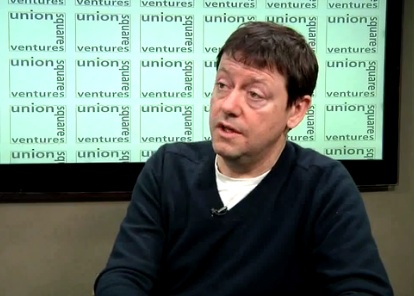Few VCs have a hotter hand right now than Fred Wilson. His firm, Union Square Ventures, is an investor in Twitter, Zynga, Foursquare, Tumblr, Etsy, Clickable, and more . In this episode of Founder Stories, he talks to host Chris Dixon about Union Square’s investment thesis has changed from going after all web apps to companies that are “building a large networks of engaged users.” (Watch the video above).
It has to be be both a large network and engaged users. By that requirement, he says he wouldn’t invest in Pandora (which just filed for an IPO yesterday, although this was taped a couple weeks ago) because Pandora listeners just sit back. The users aren’t doing anything in Pandora,” he says, “even though Pandora is a great company.” Similarly, he wouldn’t invest in Groupon. Not because he thinks it’s a bad business, it’s just not his area of focus. “Groupon is an ad network,” he says, “we wouldn’t invest in that.” Within ecommerce, he feels that marketplaces (like Etsy) do fall under his definition, but things like Diapers.com or Zappos would not. Wilson also mentions some companies that got away which he wishes he had invested in: AirBnB and Bump, which he lost to Sequoia.
Dixon and Wilson also talk about the relationship between founders and VCs, and the importance of injecting capital when a company needs to scale, as happened with Twitter and Tumblr. Dixon recalls a study that showed the farther way the VC is from a company, the better it does. Wilson agreed, citing as proof Twitter and Zynga, which are both in California, while Union Square is based in New York (as an early investor in both, this gave the two companies about a year of minimum meddling).
In the video segment below, Wilson and Dixon dive into the mechanics of the VC business, and talk about Union Square’s new $165 million Opportunity Fund, the “cancerous management fees” VC firms charge their investors, and why it might be a good thing to let startup founders take money off the table before an IPO or sale. “It allows them to take more risks,” argues Wilson, “because not everything is riding on the company.”
If you want to hear more of this conversation, check out Part I where Wilson and Dixon talk about today’s frothy valuations.
